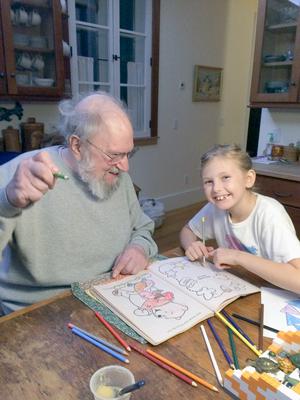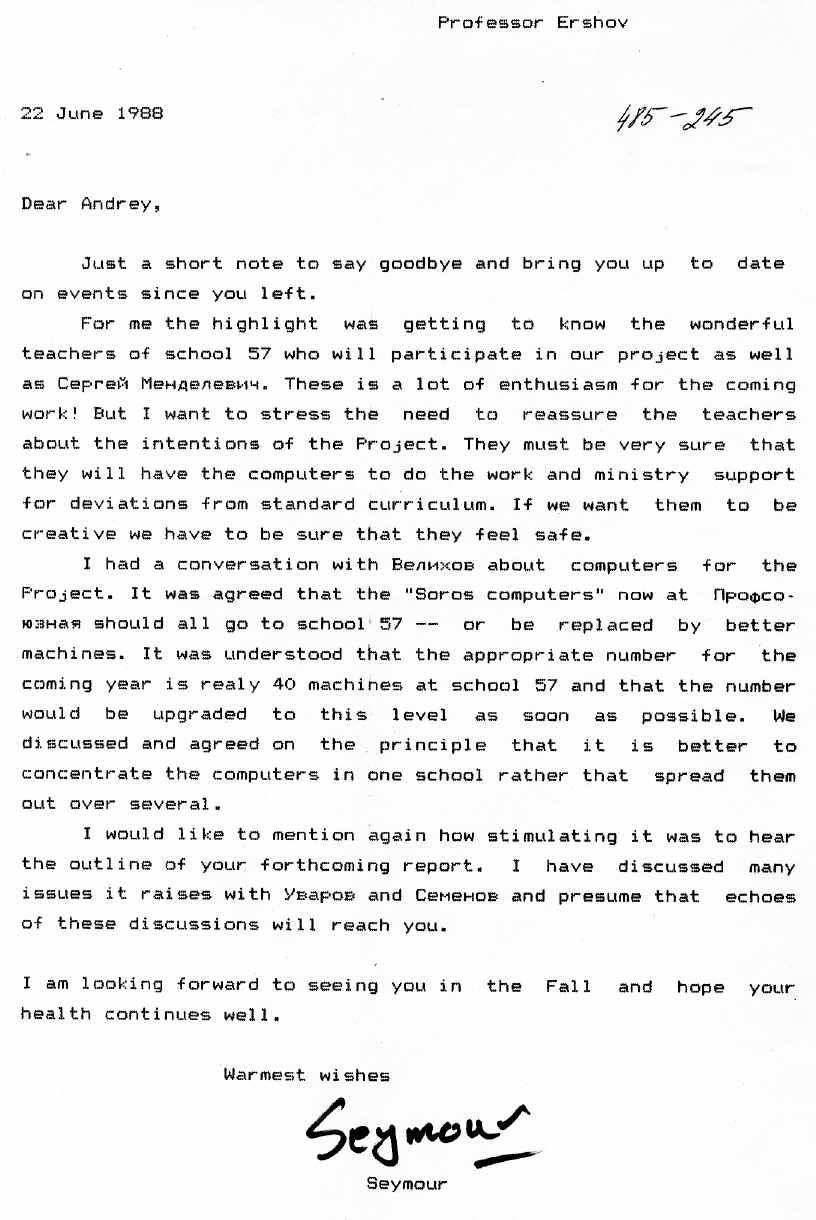Seymour Papert: Hard Fun
- Transfer

I heard a lot of criticism from people who believe that this column (and other works written by me) promotes a lack of discipline in training, as well as the idea that it is not necessary to tense up and hang on textbooks during training. I will not dispute their point of view. I am opposed to the traditional methods by which today's schools force children to learn, and most of the attempts to introduce a more entertaining and less compulsory curriculum end up in the end turning inside out. However, it is not fair to accuse me of complicity in this crime. My entire career path in the field of education was devoted to finding such an activity, so that it warmed up the student's interest in hard work, which is necessary for mastering complex material and acquiring self-discipline skills.
Back in the mid-80s, I heard something brilliant from a first grader, and his words still help me explain the essence of my approach. Gardner Academy (an elementary school in a poor San Jose area in California) was one of the first schools to have enough computers for students to spend a lot of time each day. An introduction to the use of computers for all classes was learning programming in the language of Logo, and moreover at a fairly good level. One of the children described the work at the computer with the words that the teacher then gave me: “This is fun (fun), this is difficult (hard), this is the Logo.” I have no doubt that this boy called the work fun, “because” it was hard, and not “despite the fact” that it was hard.
As soon as the idea of hard fun came to me, I began to listen to her and heard her again and again. It expresses itself in different ways, but it all comes down to the conclusion that everyone likes hard, forcing things to work harder. But they must be properly chosen for the person and culture of the time. Today’s fast-paced times challenge teachers who are looking for activities that would be difficult in the right sense: it should interest children, but also must bring knowledge, skills, and (let's not forget) the moral standards that they need when they grow up.
I wrote in this column about adolescents in a correctional facility for minors in the state of Maine who overcame their deep internal aversion to any kind of schooling when they got the opportunity to invent and build complex mechanical / robotic devices. It requires concentration and discipline. In a situation when something does not work, you have to learn - to figure out how to fix the problem, and not to give up and give up. And for some of these children, this triggered the fact that for the first time they wanted to write something - because they were doing something that interested them, and they were doing it themselves.
The phrase "the pleasure of writing" makes me stop. At this very moment, writing is not entirely pleasant. I am upset by the ticking of clocks, which count down the time to the approaching deadline. It hurts me because I had to throw away a whole paragraph, because I saw that it was “not right”, although there was a phrase in it that I fell in love with. Therefore, perhaps “pleasure” is not the right word. And not the word "fun." We need a more appropriate word for this, and who knows, perhaps a first grader from San Jose said the best option. We are talking here about a special kind of fun ... about "heavy fun."
How do we make the letter "hard fun"? One way is to develop “recordable” types of activities for children that they like to do. Creating a robotic device is “easy to create” because it can be described in stages. Its ease of creation is further enhanced by the use of word processors and digital cameras. But in addition to technology, the attitude towards learning culture is important. For example, one teacher objected to the fact that children should be allowed to write about what they liked: "When they go to work, they will have to follow instructions, and not invent their own." This is the reason for the failure of many children to learn to read. Of course, we need to teach children the skills of self-control that are necessary to follow directions.
Translation: Olya Mars
Still
“Neither mathematics nor man can be fully understood, being separated from each other.”
- Seymour Papert
- 0 March. Seymour Papert and body programming training (and unconscious)
- Change the Way Kids Learn ( Seymour Papert: How the computer changed us and our children ) (1999)
- Letter of Seymour Papert Yershov

- Seymour Papert " Mathematical Unconscious "
- “Computer as a condom” (2002)

About #philtech
#philtech (технологии + филантропия) — это открытые публично описанные технологии, выравнивающие уровень жизни максимально возможного количества людей за счёт создания прозрачных платформ для взаимодействия и доступа к данным и знаниям. И удовлетворяющие принципам филтеха:
1. Открытые и копируемые, а не конкурентно-проприетарные.
2. Построенные на принципах самоорганизации и горизонтального взаимодействия.
3. Устойчивые и перспективо-ориентированные, а не преследующие локальную выгоду.
4. Построенные на [открытых] данных, а не традициях и убеждениях
5. Ненасильственные и неманипуляционные.
6. Инклюзивные, и не работающие на одну группу людей за счёт других.
Акселератор социальных технологических стартапов PhilTech — программа интенсивного развития проектов ранних стадий, направленных на выравнивание доступа к информации, ресурсам и возможностям. Второй поток: март–июнь 2018.
Чат в Telegram
Сообщество людей, развивающих филтех-проекты или просто заинтересованных в теме технологий для социального сектора.
#philtech news
Телеграм-канал с новостями о проектах в идеологии #philtech и ссылками на полезные материалы.
Подписаться на еженедельную рассылку
1. Открытые и копируемые, а не конкурентно-проприетарные.
2. Построенные на принципах самоорганизации и горизонтального взаимодействия.
3. Устойчивые и перспективо-ориентированные, а не преследующие локальную выгоду.
4. Построенные на [открытых] данных, а не традициях и убеждениях
5. Ненасильственные и неманипуляционные.
6. Инклюзивные, и не работающие на одну группу людей за счёт других.
Акселератор социальных технологических стартапов PhilTech — программа интенсивного развития проектов ранних стадий, направленных на выравнивание доступа к информации, ресурсам и возможностям. Второй поток: март–июнь 2018.
Чат в Telegram
Сообщество людей, развивающих филтех-проекты или просто заинтересованных в теме технологий для социального сектора.
#philtech news
Телеграм-канал с новостями о проектах в идеологии #philtech и ссылками на полезные материалы.
Подписаться на еженедельную рассылку
